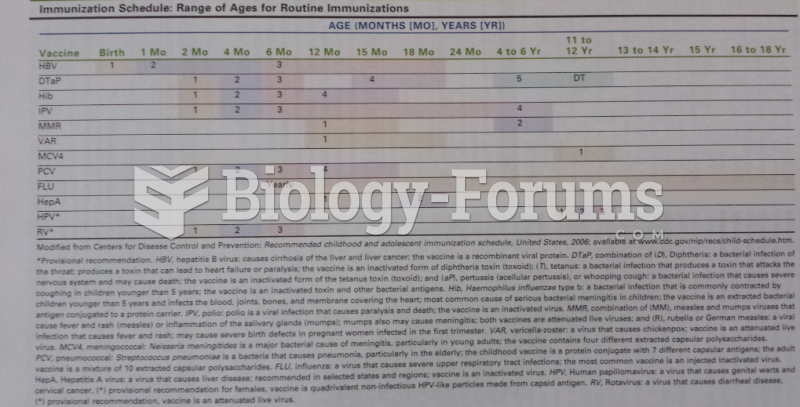This topic contains a solution. Click here to go to the answer
|
|
|
Did you know?
Studies show that systolic blood pressure can be significantly lowered by taking statins. In fact, the higher the patient's baseline blood pressure, the greater the effect of statins on his or her blood pressure.
Did you know?
People with high total cholesterol have about two times the risk for heart disease as people with ideal levels.
Did you know?
Human stomach acid is strong enough to dissolve small pieces of metal such as razor blades or staples.
Did you know?
Human kidneys will clean about 1 million gallons of blood in an average lifetime.
Did you know?
Vital signs (blood pressure, temperature, pulse rate, respiration rate) should be taken before any drug administration. Patients should be informed not to use tobacco or caffeine at least 30 minutes before their appointment.
 The connector must be opened (disconnected) to check and/or adjust the ignition timing. On DIS/EDIS ...
The connector must be opened (disconnected) to check and/or adjust the ignition timing. On DIS/EDIS ...
 Instruct recipient on giving you feedback immediately if heat becomes too intense. Remind the person ...
Instruct recipient on giving you feedback immediately if heat becomes too intense. Remind the person ...





